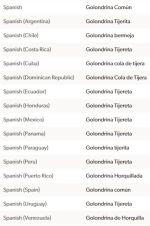An aside comment - even AOS in this latest statement about their efforts to essentially “do the right thing” manages to do the wrong thing in their definition of North America.
“The AOS’s North American Committee on Classification and Nomenclature (otherwise known as the North American Classification Committee or NACC) maintains the Check-list, whose geographic coverage now includes continental North America, Middle America (Mexico through Panama), Hawaiʻi, and the West Indies (
Winker 2022).”
Middle America is part of North America. North America is more than two countries.
I’m continually a bit surprised that the ornithological community continues with this incorrect usage of North America.










